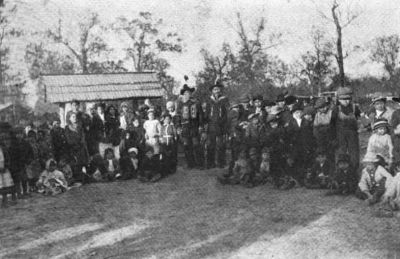The Cherokee Nation is officially neutral regarding the American Civil War. Chief John Ross weeks earlier declared that Cherokees wished to “take no part in the present deplorable state of affairs” and hoped that “they should not be called upon to participate in the threatened fratricidal war….”
Despite the Cherokee’s pledge of neutrality, Confederates immediately seek to convince the Indian nation to ally with the South. In response, some Cherokees join the Confederate Army, pitching the tribe into disarray along political, economic and social fault lines.
Religion plays a significant role in Cherokee life in 1861, as most tribal members are Baptists, Methodists or Presbyterians. Many of the influential ministers are Baptists, some of whom are natives. Baptists North and South are an integral part of the Cherokee nation. Southern Baptist influence is especially notable in the southern portion of Cherokee lands.
Some Cherokees who align themselves with the South also embrace African slavery. Others side with the Union and advocate traditional tribal identity and call for the “preservation of the Cherokee nation.”
In the midst of this conflict, a Baptist minister among the Cherokees “who had left the Keetoowah Society” is murdered this month. The Keetoowah Society is a group within the Cherokee Nation. Birthed within Baptist churches and incorporating traditional native religious values, the society is devoted to sustaining the Cherokee way of life. The Baptist influence within the society is of the northern persuasion. Affiliated churches are comprised of both Indians and Africans and advocate the abolition of slavery.
The Native Minister, an inoffensive and pious man, was murdered — called out of his house at night and shot; he ran — they followed him and cut his throat. The cause is hard to ascertain. Three rumors here: 1st, Because he would not leave the Southern Baptist Church…
Chief John Ross does not long remain neutral, signing an alliance with the Confederacy in October 1861. Internally, however, the Cherokee nation remains divided during the war years.
Sources: Patrick Minges, “Are You Kitawuh’s Son? Cherokee Nationalism and the Civil War” (link), Patrick Minges, “The Keetoowah Society and the Avocation of Religious Nationalism in the Cherokee Nation, 1855-1867” (link); “Original Keetoowah Society,” Native American Encyclopedia (link); photo (link)



